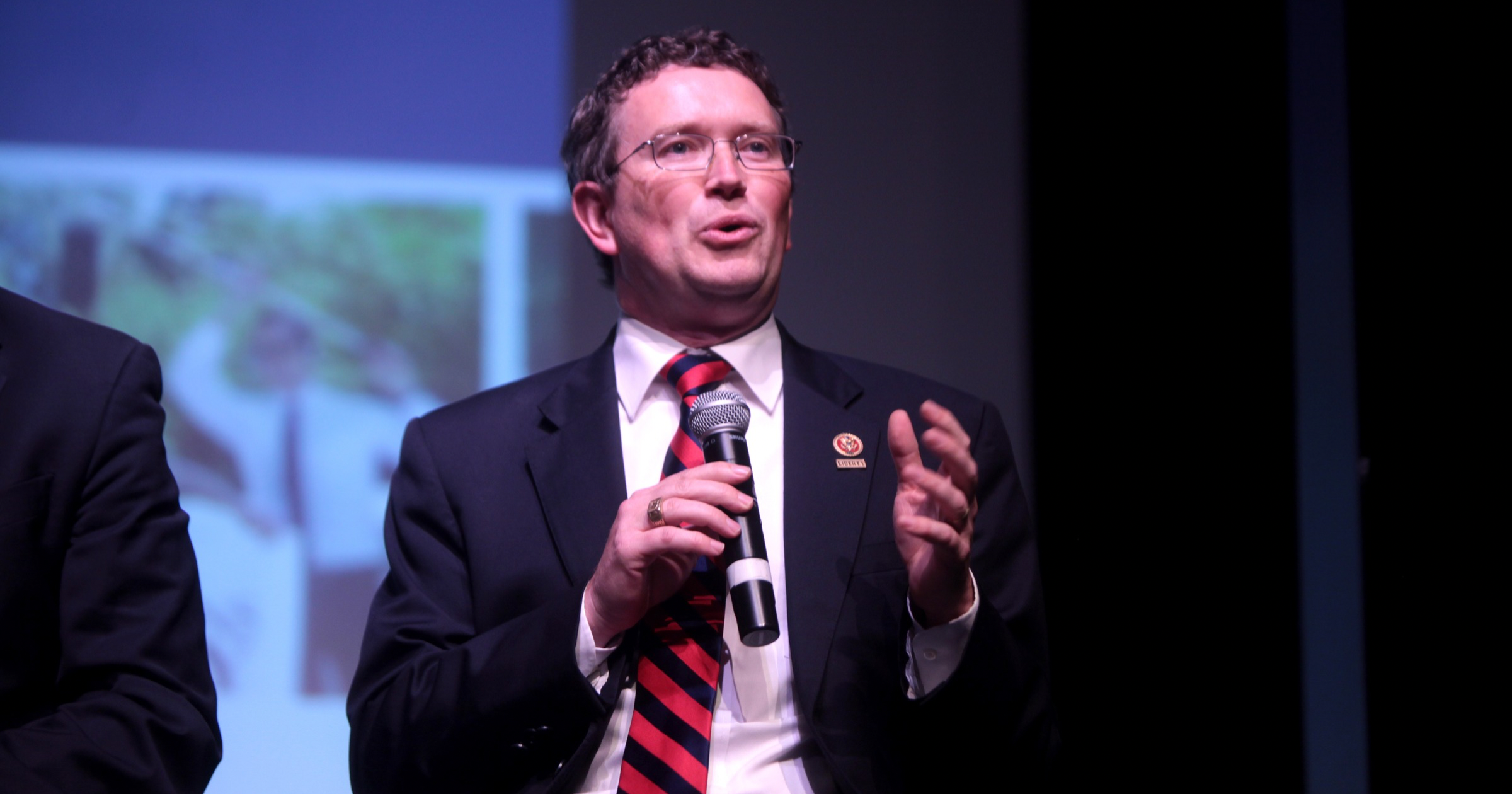
“Thomas Massie” by Gage Skidmore is licensed under CC BY-SA 2.0 .
Rep. Thomas Massie voted no on the budget reconciliation bill despite some conservative wins. He said the bill would significantly increase U.S. budget deficits in the near term.
Massie warned that bigger deficits mean “sustained inflation and high interest rates,” hurting all Americans. When the government increases spending without offsetting revenue, it often borrows more from financial markets, increasing demand for credit. This pushes interest rates higher as the Treasury competes with private borrowers for funds.
Although there were some conservative wins in the budget reconciliation bill (OBBBA), I voted No on final passage because it will significantly increase U.S. budget deficits in the near term, negatively impacting all Americans through sustained inflation and high interest rates. pic.twitter.com/rjcRc8t0ay
— Thomas Massie (@RepThomasMassie) July 3, 2025
Higher government deficits can also fuel inflation if the economy is already near full capacity. More government spending injects additional demand, bidding up prices for goods, services, and labor. This has been a pattern flagged by many economists in recent years, especially after large COVID-era spending raised both economic output and inflation.
The bill still passed the House largely along party lines. Supporters argue it will drive growth through targeted tax credits and spending measures aimed at boosting economic activity and supporting working families. They believe these policies will stimulate consumer spending and business investment, generating tax revenue that could offset some deficit impacts. But Massie isn’t buying it. He believes the short-term boost risks worsening America’s debt load and prolonging the Federal Reserve’s elevated interest rate policies to keep inflation under control.




